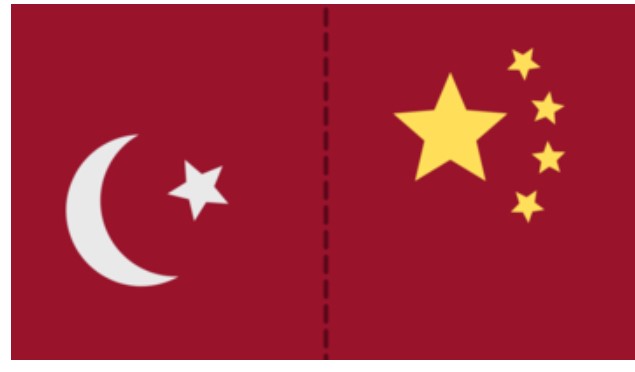Despite being a middle power with security connections to the United States and economic ties with China, Turkey could rely more on development under the Belt and Road Initiative in the future, analysts say.
Turkey marked 51 years of diplomatic and trade ties with China this year, with President Xi Jinping telling his Turkish counterpart Recep Tayyip Erdogan in September that Beijing was ready to elevate the strategic partnership between the two countries, established in 2010, to a higher level.
The September meeting at the Shanghai Cooperation Organisation summit was viewed by some as signalling a new era in relations between the two countries. But major differences remain, including on the treatment of Uygur Muslims in China, and Turkey’s membership in Nato, the transatlantic security alliance.
“Turkey, as a country in Nato, will be cautious towards China on the security front,” said Li Lifan, a senior fellow at the Shanghai Academy of Social Sciences. “But it will rely on China’s technology and capital to develop the digital economy under the Belt and Road Initiative.”
The two nations signed a memorandum of understanding in 2015 to align development of the Belt and Road Initiative with the Middle Corridor, a trade initiative from Ankara that aims to link China with Europe via Turkey – which officially has changed its name to Türkiye – by road and rail.
The route from Turkey, which aims to capitalise on the country’s transcontinental position, would pass through the Caucasus and Central Asia before reaching China’s western Xinjiang region.
To ensure smooth operation of the Middle Corridor, Turkey needs investment to construct a railway between the northeastern city of Kars and the capital Ankara, said Gokhan Tekir, an assistant professor with the Department of International Relations at Ankara Haci Bayram Veli University.
Global, said that belt and road projects have not yet “taken off” in Turkey, with only a seaport and an energy-plant, which is still under construction, that could be counted as major investments.
Turkey’s economic development through international cooperation should proceed independently from political alliances or ideological considerations, Atli said.
Tekir said the Turkish government considers the Belt and Road Initiative a way to achieve its goal of connecting Beijing with London.
“There is a more pragmatic [and] business-oriented approach,” he said. “What matters when it comes to Chinese investments in Turkey will be the extent to which they would contribute to economic development.”
In the first nine months of the year, Turkish data showed its main import partner was Russia followed by China, while its key export market was Germany, then the US.
